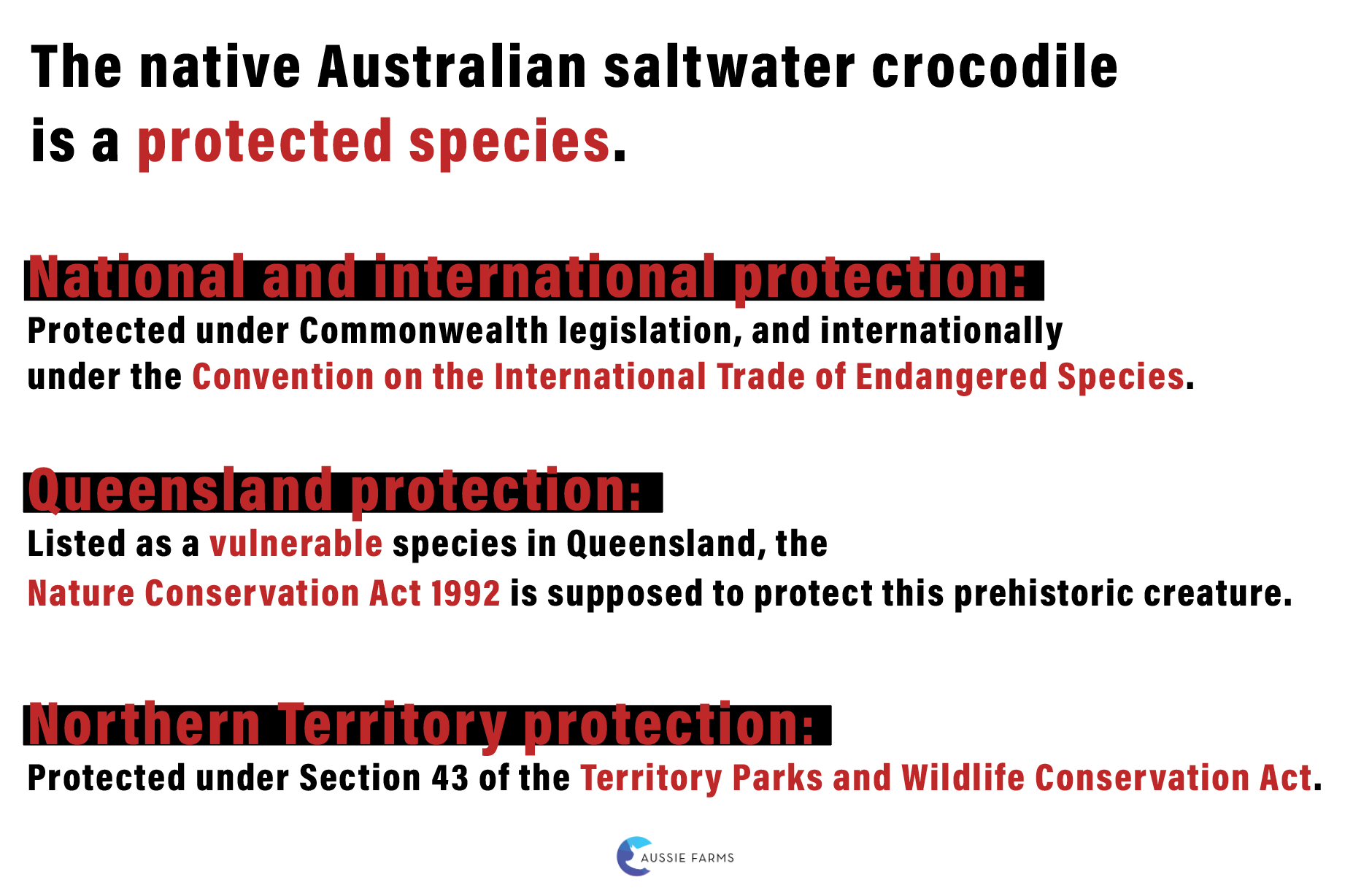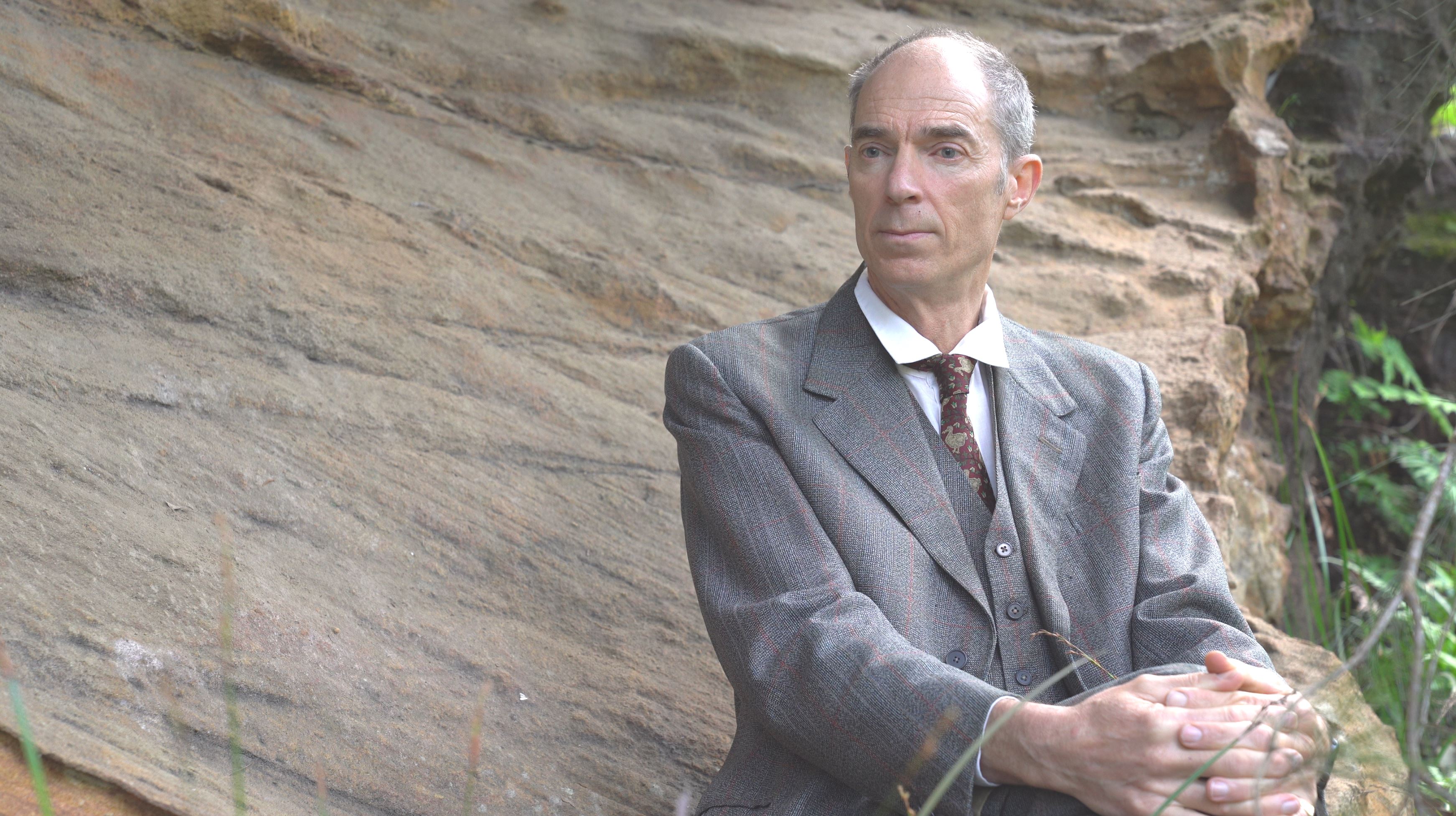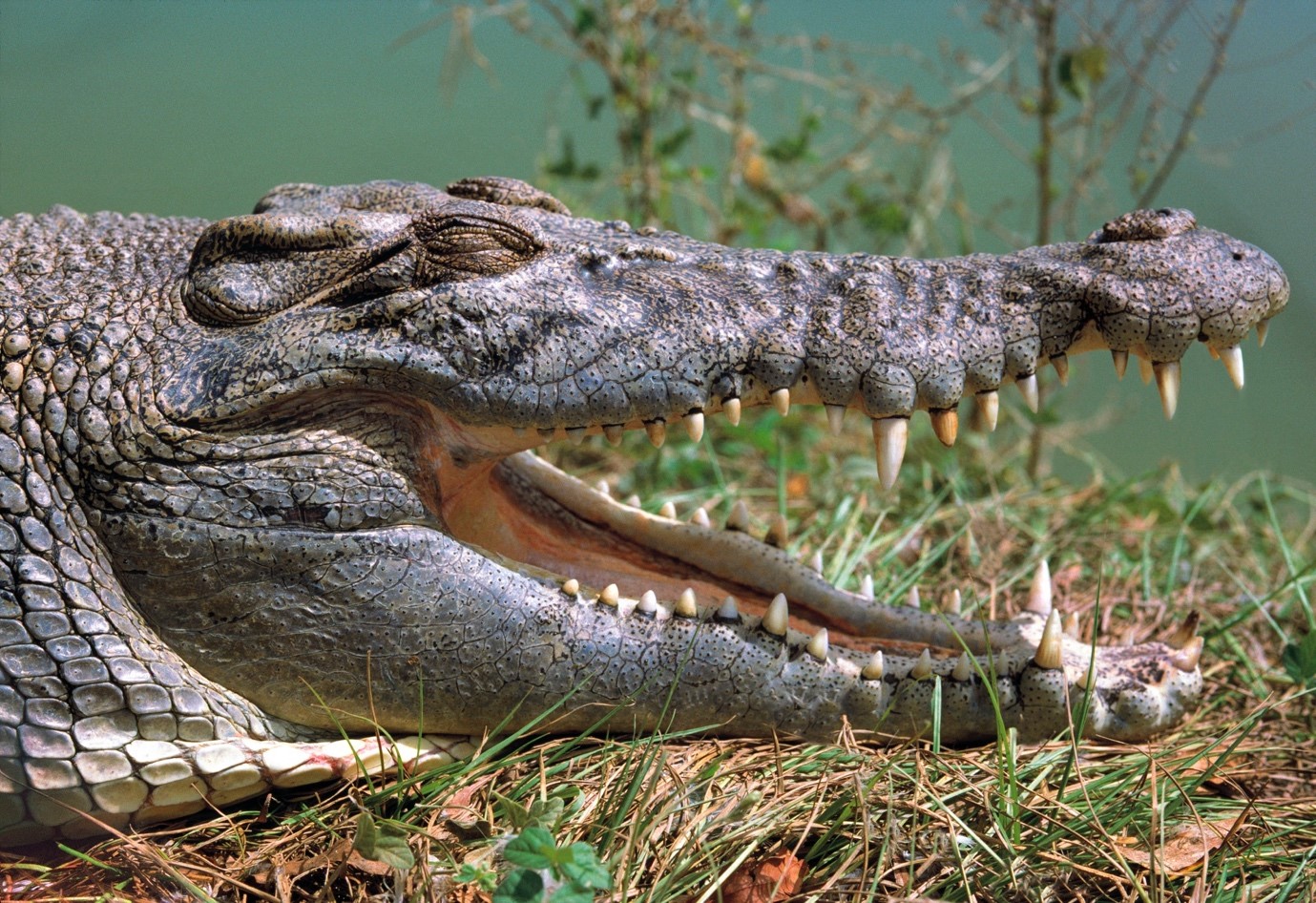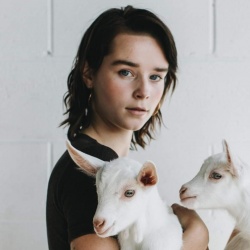News & Media > Editorials > The mass slaughter of protected native Australian crocodiles
The mass slaughter of protected native Australian crocodiles
In the 1970s, after having been senselessly shot to near extinction, only 3,000 saltwater crocodiles were left in the Northern Territory. Primarily killed to be skinned for sale to the fashion industry, the Australian Government implemented protections for these native creatures.
Today, these legal protections are still in place in international, national and state/territory legislation.

Australian Government recognises that native crocodiles are sentient animals who must not have an ‘act of cruelty’ committed against them; that crocodiles are a ‘critical part of aquatic ecosystems’, who hold ‘cultural value’ to indigenous Australians. Despite all of this, crocodiles are treated appallingly on factory-farms and slaughtered only a few years into the long lives they would naturally live.
Laws protecting crocodiles were specifically changed to allow for them to be factory-farmed. Saltwater crocodiles, ‘crocodylus porosus’, was listed in Appendix I of the Convention on the International Trade in Endangered Species of Wild Flora and Fauna (CITES) for all range countries. However, in Australia and some other countries, the species is now listed on Appendix II, following a proposal that crocodiles be farmed and slaughtered.
Essentially, the saltwater crocodile was moved from most endangered and in need of protection from extinction to a lesser protection, for the sake of commerce. It was claimed that by allowing humans to slaughter crocodiles for profit, at a tiny fraction of their natural lifespan, on factory-farms, their population would be ‘protected’ from extinction.
This is clearly an incredibly problematic, capitalist and commercially driven way of thinking about conservation. Conservation should not make compromise for profit, and should be compassionate towards the species we intend to protect.

Compassionate conservation
When conservationist Chris Darwin, descendant of Charles Darwin, was first shown footage of crocodile factory farms released by Aussie Farms regarding the industry he stated; ‘the audacity to call this conservation when really it is just commerce… it seems ridiculous’
We ought to genuinely protect and conserve the prehistoric, native crocodiles who share this land with us, not commodify them, not keep them incarcerated in small concrete based cages they cannot turn around in and not routinely and industrially slaughter them. To protect crocodiles is to consider their individual wellbeing, not just how many individuals are in existence.
To properly conserve crocodiles, we must protect and conserve too their natural habitat; the native aquatic and floral systems they live and should thrive within. In fact, if the homes of crocodiles are protected and lesser disturbed, there will likely be less attacks.
There is fear that a healthy native crocodile population will be a risk to human communities, but because of Australia’s effective education programs, Australia has the highest saltwater crocodile population globally, and low fatality rates. Further supporting already effective community awareness and education programs, like Be Crocwise, would benefit humans and crocodiles alike.

Crocodiles in their native habitat
More people may be encouraged to truly protect crocodiles if a greater understanding of crocodiles and their lives existed. Crocodiles are gregarious and enjoy living with other crocodiles. They live highly socially intelligent lives, requiring mental stimulation to avoid negative affective states, and even enjoy playing together.
Crocodiles have existed on this land for at least 100 million years. Saltwater crocodiles have an average lifespan of 70 years, often living far longer, but are slaughtered for their skin at between 2 to 3 years old.
These individuals deserve to live their lives in freedom.



